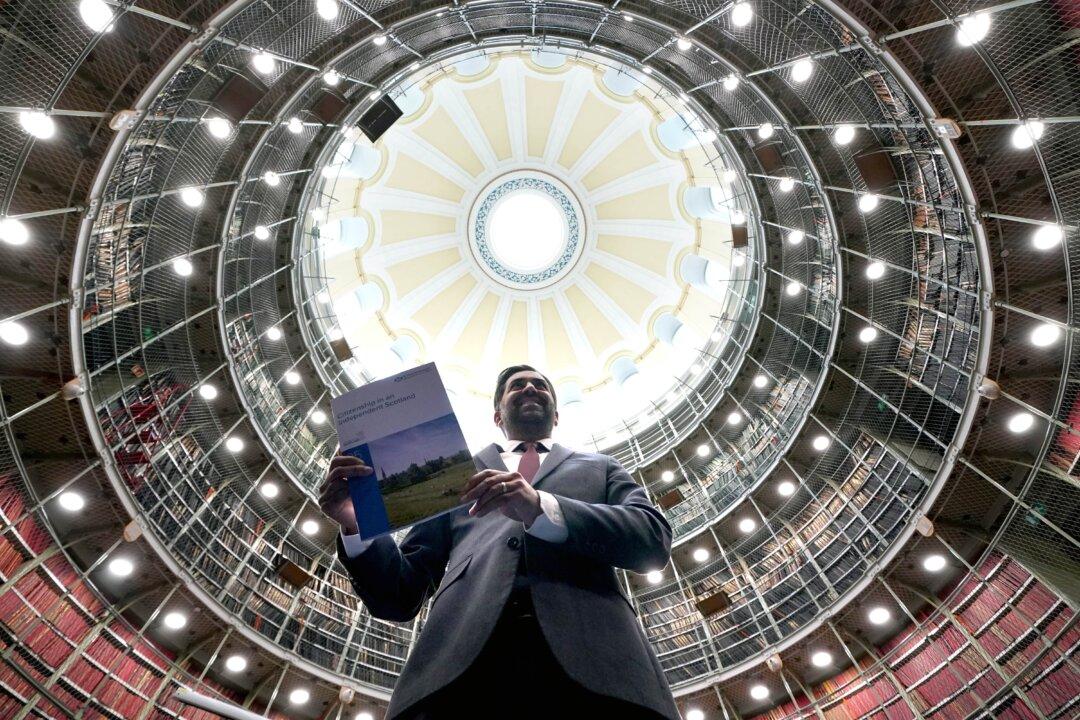Scotland’s First Minister Humza Yousaf has said that leaving the UK will attract more people to help the “demographic challenge” Scotland faces, as part of his proposition to set out an “inclusive” model of citizenship after independence.
Ahead of pursuing a second referendum, Mr. Yousaf, who describes himself as a “proud Scottish Pakistani,” set out his approach to citizenship in an independent Scotland.





